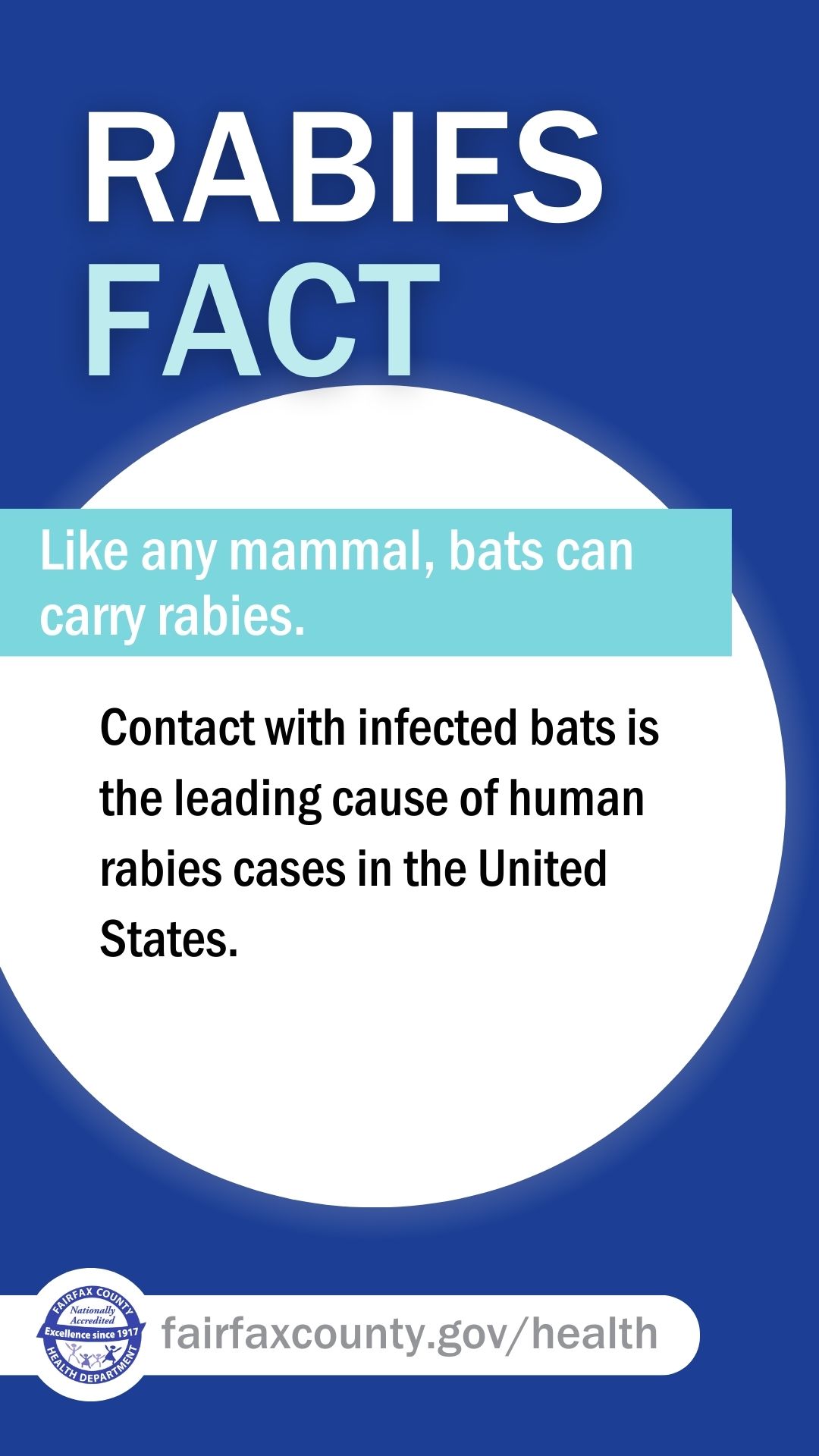Each year on September 28, World Rabies Day is observed to bring attention to rabies and rabies prevention. Rabies is a disease caused by a virus that infects the central nervous system. The virus is usually spread through a bite or scratch, but also can be passed along through direct contact with an infected animal’s saliva or central nervous tissue through an open wound, mouth, nose, or eyes.
 Rabies is nearly 100 percent fatal in mammals, including humans. Fortunately, rabies is also preventable. Thanks to prevention efforts, in the United States, deaths are now rare and typically occur in people who do not seek prompt medical care.
Rabies is nearly 100 percent fatal in mammals, including humans. Fortunately, rabies is also preventable. Thanks to prevention efforts, in the United States, deaths are now rare and typically occur in people who do not seek prompt medical care.
In the U.S., rabies is mostly found in wild animals. According to the Centers for Disease Control and Prevention (CDC), in 2018 bats were the most frequently reported rabid wildlife species, followed by raccoons, skunks, and foxes. While rare, most of the recent human rabies cases in the U.S have been caused by rabies viruses associated with bats.
Bats are an important part of the ecosystem and help us #FighttheBite — each bat can eat thousands of insects in a night, including mosquitoes. There are 17 species of bats in Virginia and eight of them are found in Fairfax Health District. The most commonly reported bat is the Big Brown Bat.
Because we share a habitat with bats, potential exposures do occur. Most bats do not have rabies, but you can’t tell just by looking at it. Rabies can only be confirmed in a laboratory.
It is important to know what steps to take if you or your family comes into contact with a bat because you may need rabies vaccinations to prevent a rabies virus infection.
- If you are bitten or scratched by a bat (or other wildlife), immediately wash the wound thoroughly and seek medical attention.
- If you find a bat in your home, call Fairfax County Animal Protection Police at 703-691-2131. They can safely remove it and determine the best course of action.
- If you may have been exposed to a bat, call our Rabies Program specialists at 703-246-2433.
It is best to be cautious and contact one of our Rabies Program specialists if you were potentially exposed, even if you are not sure if you were bitten or scratched. They can help you determine what to do next.
Exposures to bats can happen outside or if they enter your home. You may not know if you, or a family member, had contact with a bat if you were asleep and woke up to find one near you. And some people may be unaware if they were bit or had direct contact because bats have small teeth that may not leave a visible mark after contact with your skin.
Learn more about bats and rabies, and what you should do if you find a bat in your home.
There are many ways you can protect yourself, your family, and your pets from rabies. One of the most important things that you can do is have your veterinarian vaccinate your dogs, cats, ferrets, and livestock for rabies and remember to keep their vaccinations up-to-date. You can also appreciate wildlife from a distance, keep your pets on your own property, and keep garbage and pet food secure inside.

